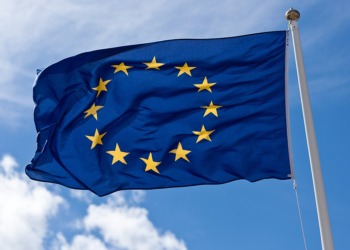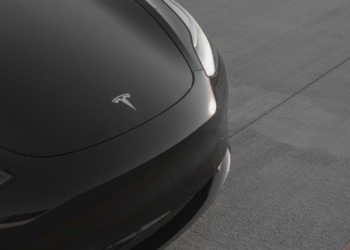Greenwashing has become a pillar of marketing campaigns in most (not so) eco-friendly industries, with many companies now often making misleading environmental claims about the sustainability of their products.
This tactic can take many forms, from “greenlighting,” where products are made to seem greener than they really are, to greenhushing, where firms choose to deliberately under-report or hide their green credentials from the public to avoid scrutiny.
But now, as authorities and environmental institutions begin to fight this practice, greenwashing is about to get a lot more expensive.
The European Union (EU) has begun to take measures to financially punish companies overstating their positive impact on the environment. In a draft leaked by Euractiv last month, the EU has promised to rebuild transparency and credibility in advertising by implementing a compulsory methodology to verify all sustainability claims.
“Consumers lack reliable information about the sustainability of products and face misleading commercial practices like greenwashing or the lack of transparency and credibility of environmental labels,” the draft for the new legislation reads, also stating that:
“Companies making ‘green claims’ should substantiate these against a standard methodology to assess their impact on the environment.”
If companies fail to comply, the EU warns there will be “effective, proportionate and dissuasive” penalties based on the “nature and gravity of the infringement,” “the economic benefits derived” from it, and the potential environmental damage caused. The H&M greenwashing scandal is a testament to that.
This comes after the European Commission found that almost half (40%) of green claims made by companies about their products were unsubstantiated. Similarly, in 2020, the Commission studied 150 claims about the environmental impact of products only to find that 53% of them were “vague, misleading or unfounded information.”
Greenlighting, lying and cheating rather than green-driving
Car companies are at the forefront of the greenwashing trend and have been for decades. In 2015, the “Dieselgate” or “Emissionsgate” scandal occurred when the Volkswagen (VW) Group was seen to be marketing their diesel-powered cars as eco-friendly, but was later found to have fitted their vehicles with software specifically designed to permit the car to drive in two modes.
During the official emissions testing executed by authorities, the VW cars were compliant with regulations, however, when driven normally, the vehicles switched to another mode which was no longer within the regulatory norms and more emissions-heavy.
Paying the fines, compensations, and vehicle buybacks associated with this scandal have cost the company over $33.3Bn, according to Reuters.
Similarly, Toyota partakes in an alternate practice of greenwashing: greenlighting. This involves spotlighting eco-friendly features of a product in an attempt to draw attention away from other environmentally damaging activities being conducted elsewhere.
In 2021, Toyota’s sales of zero-emissions vehicles made up just 0.2% of their total car sales, the lowest percentage of the top 10 car manufacturers globally. Impakter rates Toyota a C on its Impakter Index, and Toyota is ranked as the 10th least eco-friendly car company worldwide.
Yet, their advertisement and branding campaign suggests that the company is much more sustainable than it really is. They market a “Beyond Zero” approach to their manufacturing, stating on their website that:
“Zero emissions isn’t our destination. It’s another step in our electrification journey to overcome barriers and build a better future for all: beyond emissions, beyond restrictions, beyond expectations and beyond barriers.”
This sort of practice would lead to financial penalties under the new EU legislation if adopted.
Activists have begun to hack advertisement campaigns from different car companies using similar greenwashing technics to bring more attention to this practice.
2/ #Toyota attempt to #greenwash their brand through their advertising agency @and_partnership about being "#BeyondZero". In practice, they aggressively lobby against climate legislation in the US, Europe, Japan and Australia #BanFossilAds pic.twitter.com/Pi4MtWH9PT
— Brandalism (@BrandalismUK) January 16, 2023
Europe’s fight against greenwashing
In France, multiple policies have already been adopted to reduce greenwashing. In 2022, France became the first country to implement a complete ban on fossil fuel advertising. In 2023, the country’s new legislation dictates that high-carbon industries, such as car manufacturers, must carry tobacco-style warnings. This is supposed to encourage more sustainable travel methods.
Although in most European countries, financial penalties for unsubstantiated green claims have not been implemented yet, in France, they already have. All advertisers must prove their green claims or face financial repercussions.
Car ads must state that walking or cycling is better for the environment.
Since the beginning of 2023, under the Climate and Resilience Law, France has put restrictions on the use of terminology like “carbon neutral,” “zero carbon,” and “fully offset” unless a Greenhouse Gas (GHG) emissions report is provided. This report must indicate the emissions of the products, how these are reduced by the company, and how residual emissions (that comply with minimum standards) are offset.
This would drastically reduce companies’ possibility to greenwash their products, as failure to comply with these rules is punishable with up to a €100,000 fine.
Related Articles: The Fossil Fuel Industry’s Anti-Climate Formula: ‘Deny, Deceive, Delay’ | Decade of Anti-Climate Action: Oil Lobbies Outspend Clean Energy Allies by 27 Times | Electrifying the Roads: Overview of the Electric Vehicle Industry | How Close Are The Most Sustainable Car Brands To Achieve Net Zero by 2050?
UK Prime Minister, Rishi Sunak, has emphasised the importance of this bill and its priority for the UK government, and experts now anticipate both the UK and EU will adopt a similar approach to greenwashing as France.
Under proposed new laws in the UK, advertisements already face much more scrutiny when marketing a supposedly green or eco-friendly product. If these claims are unfounded, companies risk fines of up to £300,000 or up to 10% of global runover.
Meanwhile, combatting climate misinformation has been a priority throughout the world: from the fossil fuel industry using online propaganda to drive profits up, to oil companies outspending clean energy allies by 27 times on advertising campaigns.
Greenwashing may have boosted sales or improved companies’ public image up until now, but this practice will hopefully soon begin to decline exponentially, as the potential benefits from augmented sales will not be worth the financial repercussions incurred when false or unfounded claims are caught.
Editor’s Note: The opinions expressed here by the authors are their own, not those of Impakter.com — In the Featured Photo: Euro Banknote. Featured Photo Credit: Markus Spiske/Unsplash










